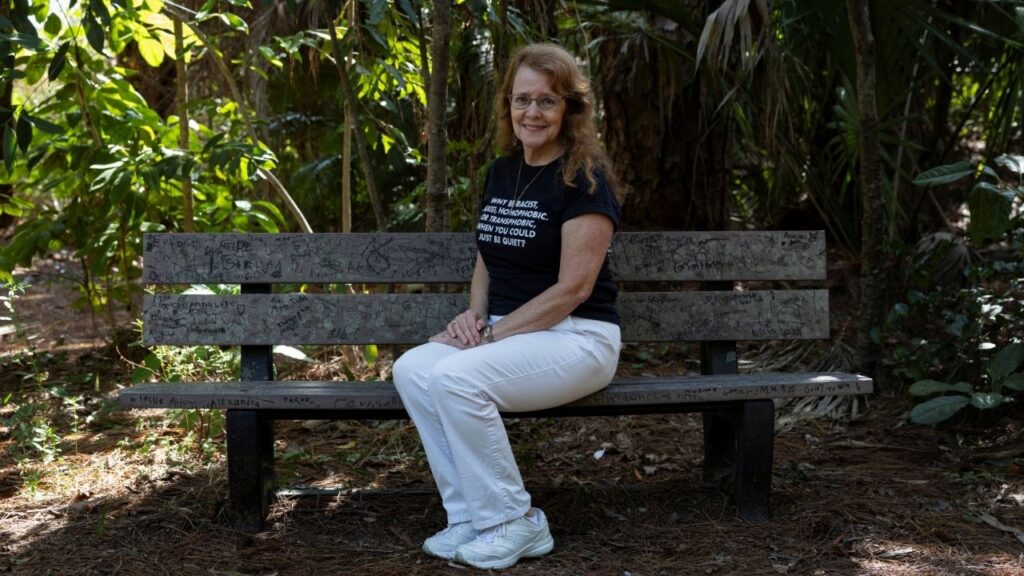Apartment buildings under construction in San Francisco, July 1, 2022. After scaling back a landmark environmental law, Gov. Gavin Newsom and other state leaders are hoping for a construction boom in California. (Jason Henry/The New York Times/File)

- A boost in high-density housing like apartment buildings and condos in downtowns across California is expected after CEQA reform.
- Housing projects will still have to meet other requirements, like building and zoning codes, but those delay projects less often.
- “There’s going to be really serious dangerous consequences,” says Mary Creasman, CEO of California Environmental Voters.
Share
|
Getting your Trinity Audio player ready...
|
The tales of construction delay have become infamous in San Francisco, one of California’s most housing-challenged cities.
Officials waylaid a project to build 10 town houses in part because of concerns that it might cast shadows on a nearby playground. A man who wanted to build in the city’s Mission District had to commission a 137-page report to prove the laundromat he was demolishing was not a historic site. City leaders voted against a plan to build 500 apartments on a Nordstrom parking lot, citing the risk of gentrification.
Similar projects, building experts said, could benefit the most after Gov. Gavin Newsom and state lawmakers on Monday significantly scaled back the California Environmental Quality Act. The 55-year-old law, known as CEQA, is considered a bedrock of the state’s environmental protections, yet has often been employed by neighbors and disaffected parties as a way to oppose any project to which they took exception.
CEQA has been frequently blamed for California’s severe housing shortage, which has resulted in high rents and home prices, along with a persistent homelessness crisis. San Francisco has often been cited as a prime example of how extensive reviews can slow or block housing construction. State officials have mandated that 82,000 new housing units be approved in the city by 2031, a goal that San Francisco is far from achieving.
Related Story: New California Environmental Rollbacks Could Boost Housing Projects in Fresno
Threat of Environmental Lawsuits Kills Projects
In theory, CEQA is simple. It requires state and local governments to study the likely environmental impact of new construction projects. But the law also allows any individual or group to sue if it determines that the initial environmental review is insufficient, and the threat of such lawsuits can delay or even kill many kinds of projects.
One of the bills that Newsom signed Monday will generally exempt what’s known as “infill” development, a project generally built on land that previously housed a different building. Such development is often considered to be more environmentally friendly, as it doesn’t involve constructing new homes on undeveloped land and creates denser communities that are more likely to use public transportation.
Many dense neighborhoods in and around downtown San Francisco could qualify for exemptions under the infill housing law, said Phillip Babich, a San Francisco-based land use and zoning lawyer. Given that, he thinks the city’s planning officials will be more likely to approve housing proposals, as they no longer have to worry about CEQA lawsuits.
“Practically speaking, that’s huge for project developers and also for public agencies,” Babich said.
Housing projects will still have to meet other requirements, like building and zoning codes, but those delay projects less often, he said.
Developers Still Face High Costs in California
Mark Rhoades, a planning and development consultant based in Berkeley, California, who leads projects across Northern California, said he expected a boost in high-density housing like apartment buildings and condominiums in downtowns across California. Developers have been discouraged by the hundreds of thousands of dollars that an environmental analysis under CEQA could cost, so they don’t propose or pursue projects. That has occurred even in cities where zoning codes typically allow dense housing and when there is political support for it.
Developers will still have to contend with the high cost of construction, labor and materials, he said, but not worrying about CEQA would be a boon. “This is going to change completely the face of how we get housing built” in downtowns statewide, he said.
He predicted that the biggest impacts would be in cities where there is already high demand for new housing, including San Francisco and Los Angeles. He also foresaw housing growth in downtowns in smaller California communities.
“You could see smaller projects start to crop up and provide a bit of density where there wasn’t much,” Rhoades said. “You’re not going to be able to plow up green fields.”
Others were less certain the new laws would usher in a wave of housing construction. Jonathan M. Zasloff, who teaches land use and environmental law at UCLA, said the changes were welcome but modest. While they will certainly speed up the timeline for a housing project to be approved, he said, waiving CEQA does not override zoning in a city that, for example, might forbid apartment complexes.
“It’s a good bill that moves the ball forward a few yards,” Zasloff said in an email. “If, say, a local government limits all of its land area to single-family homes, there is nothing in this bill that I have seen so far that would change that.”
In such situations, California officials could put pressure on a reluctant city if it is not meeting its targets for approving enough new housing units. Newsom has already sued cities that have resisted apartments for lower-income residents, and the new laws provide CEQA exemptions for governments that rezone land to meet their housing goals.
Reforms Weaken Protections, Says Environmentalist
Mary Creasman, CEO of California Environmental Voters, said she strongly agreed that housing was a major concern in California — and a climate one at that, as transportation and residential buildings have been the greatest contributors to the climate crisis. But she balked at the new exemptions, saying that they would likely have little impact on housing but would significantly weaken environmental protections.
She pointed to restrictive local zoning laws, fluctuating interest rates and the rising costs of land, material and labor as the primary impediments to building more housing in California. Thinking the new laws are “a silver bullet to solve our state’s housing issues — that’s just silly,” she said.
She said that CEQA is the only way the local residents can voice their opinions about development projects near their homes. That’s vitally important, she said, especially for communities of color who for decades have been subject to industrial development, pollution and heavy traffic in their neighborhoods.
“There’s going to be really serious dangerous consequences,” she said.
Jim Wunderman, president and CEO of the Bay Area Council, a business group that cosponsored the legislation, said he hoped for serious increases in housing density in the region. He pointed out that San Francisco and Paris occupy roughly the same square mileage, but San Francisco’s population is 800,000 and Paris’ is 2.1 million.
“We have this incredible region, but where’s the density?” he said. “I don’t hear too many people complaining about Paris as a place to be.”
This article originally appeared in The New York Times.
By Soumya Karlamangla/Jason Henry
c.2025 The New York Times Company
RELATED TOPICS:
Categories

Fresno Man Killed in Auberry Identified



















